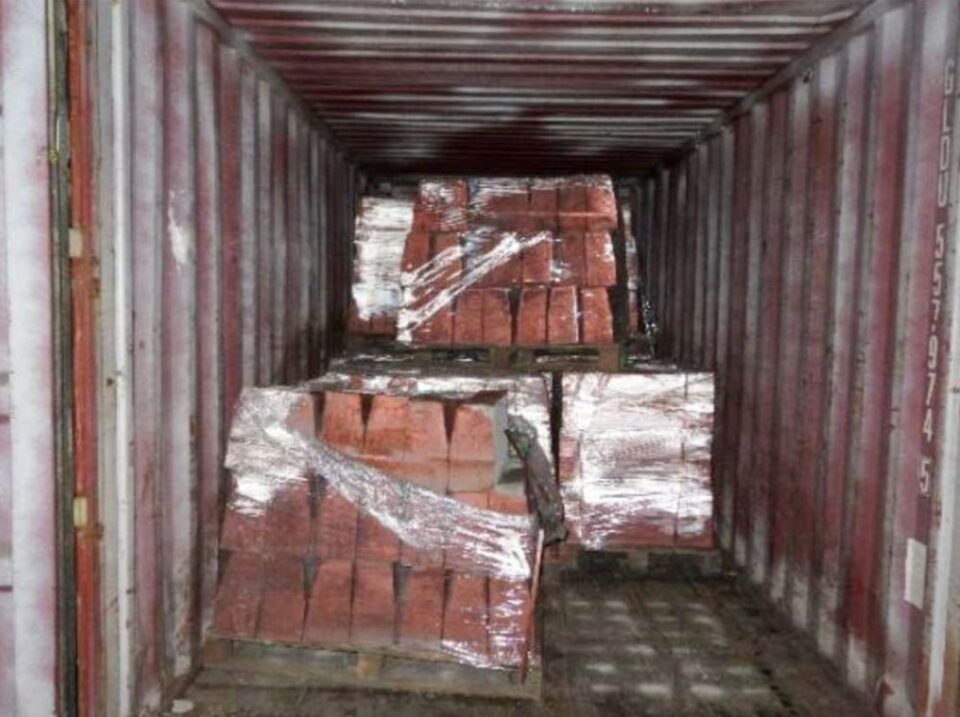A commodities trader was given painted stones instead of $36m (£26m) of copper from a Turkish supplier in a fraudulent deal last summer.
Geneva-based Mercuria Energy Group says it’s been the victim of cargo fraud following its purchase of 10,000 tons of copper blister.
When the cargoes started arriving in China, it found containers full of painted stones instead.
The bizarre case happened despite security and inspection controls.
Last year, Mercuria agreed to buy the copper blister, an impure form of the metal, for delivery to China. About 6,000 tonnes was loaded for shipment in more than 300 containers on eight vessels.
But before its journey from a port near Istanbul, the copper was switched with paving stones, spray-painted to resemble the semi-refined metal.
Mercuria, one of the five-biggest oil traders in the world, is seeking redress in Turkish and UK courts against the copper supplier Bietsan Bakir.
Turkish police have taken a number people into custody in relation to the fake copper scheme.
“Suspects have been taken under custody who are thought to be involved in the various parts of this organised crime against Mercuria,” the company said in a statement while thanking the Istanbul Financial Crimes Department.
Seals broken
It appears the copper was initially loaded into the first shipment of containers, before being surveyed by an inspection company. Seals used to prevent fraud were fixed to the containers.
But the containers were opened and the copper replaced with paving stones, Istanbul law firm KYB told media. The fraudsters switched between fake and real container seals to avoid detection.
Once the vessels were at sea, Mercuria paid $36m over five installments.
The fraud wasn’t discovered until the ships began arriving in the Chinese port of Lianyungang later that month.
“There has been a criminal investigation petition by the buyer against the seller and two intermediaries,” Turkish police said in a statement. “It’s been determined that the incident is the outcome of fraud perpetrated in an organised manner.”
In cases of non-delivery a trader could make a claim against a cargo’s insurance policy. But Mercuria found that just one out of seven contracts used by the Turkish company to insure the cargo was real. The rest had been forged.
Bietsan Bakir, the Turkish firm which sold Mercuria the copper, did not respond to requests for comment when contacted by Reuters. More hearings on the case are expected this week.
bbc




